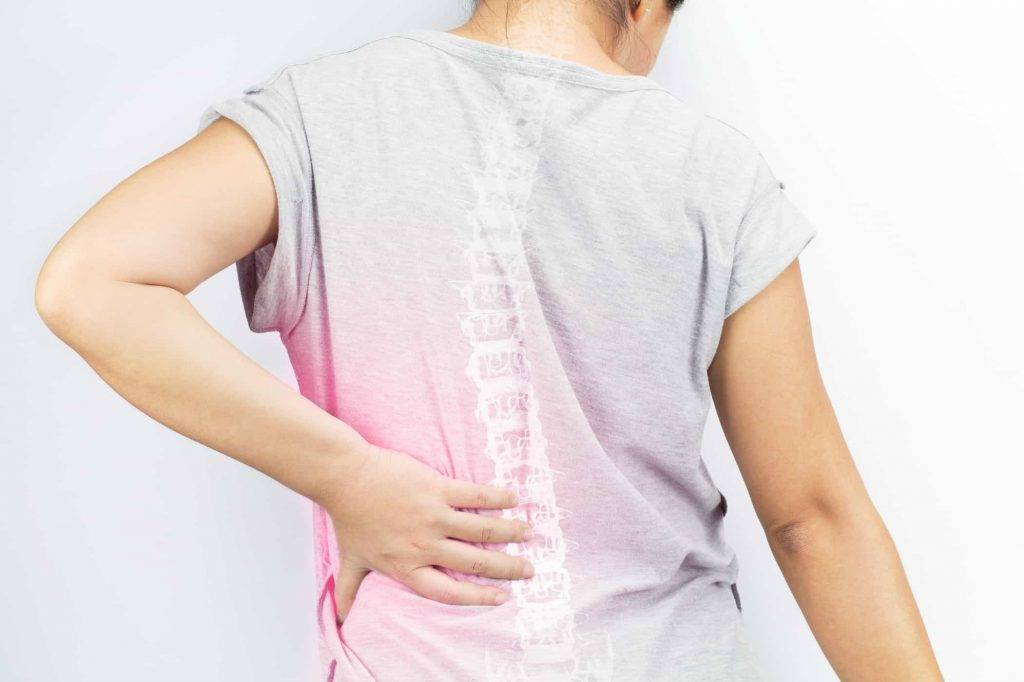Herniated Disc versus Bulging Disc: What’s the Difference?

Your spine contains discs which are made of cartilage. The outer part is a thick, tough layer of cartilage, while the inside is softer. These spinal discs are located between the vertebrae and help to cushion the spine against damage from an injury. They act as shock absorbers.
Over time, the discs begin to dehydrate and show signs of age or wear and tear. Two common issues and causes of back pain are bulging discs and herniated discs.
Are a bulging disc and a herniated disc the same?
Which is worse: a herniated or bulging disc?
How can you treat bulging or herniated discs?
Keep reading for more information on the differences, causes, and treatment options for bulging and herniated discs.
Are a Bulging Disc and a Herniated Disc the Same?
Bulging, slipped, and herniated discs are common names for disc problems, but they are not the same. A herniated disc is also called a slipped or ruptured disc, but it still differs from a bulging disc. A physical exam and diagnostic tests may be ordered to diagnose your disc problem.
What Is a Bulging Disc?
Bulging discs are commonly caused by age-related degeneration. When the soft inside of the disc starts to dry up, it can become compressed and push out. This causes pain as the disc may affect the nerves around the spine.
Bulging discs are more common at the bottom of the spine. Symptoms may include:
- Back pain
- Muscle spasms
- Weakness
- Numbness
- Decreased mobility in the legs, knees, and ankles
- Problems walking
A bulging disc increases the risk of a herniated disc.
What Is a Herniated Disc?
Also called a ruptured or slipped disc, a herniated disc occurs when the soft section pushes out through a tear. It can occur in any part of the spine, including the neck and low back. The most common cause of a herniated disc is gradual, age-related wear.
The symptoms of a herniated disc often affect one side of the body and depend on the location and whether the nerve is affected. Symptoms of a herniated disc include:
- Pain in the arm or leg
- Numbness
- Muscle weakness
What’s Worse: A Herniated Disc or Bulging?
A herniated disc often causes more pain than a bulging disc. This is because the herniated disc protrudes further than a bulging disc and may affect the nerves. The pain may be due to compression of the nerve or inflammation.
Treatment for Herniated or Bulging Discs
Bulging and herniated discs both require treatment to prevent the damage from getting worse or causing more pain. Conservative treatment is generally the first course of action and progresses from there based on the patient’s needs.
How Do You Treat a Bulging Disc?
A bulging disc can often be treated at home with rest. Over-the-counter pain reliever may help relieve discomfort. A physician or physical therapist may recommend specific stretches to help support and relieve pressure on the spine.
How Do You Treat a Herniated Disc?
Untreated, a herniated disc presses on the nerves in the spine. This causes pain, weakness, and numbness in the legs, arms, back, and neck. With proper rest and treatment, the pain and discomfort should subside in a couple of weeks.
The herniated disc treatment recommended depends on the severity of the problem and may include the following:
- Rest can help reduce the swelling in the disc. Avoid exercise, especially movements that involve lifting and bending. Ice and heat may help relieve your pain.
- Over-the-counter pain relievers can be used as directed for pain relief and to reduce swelling.
- Physical therapy may involve specific exercises, massage, ultrasound therapy, or muscle stimulation to ease your pain.
- Injections reduce inflammation and improve your mobility. Imaging guidance may be needed to ensure proper placement of the medication.
- Surgery is rarely needed for herniated discs but may be an option if other treatments fail.
Get Treatment for Bulging or Herniated Discs in Charlotte, NC
At Advanced Sports & Spine, your health and wellness are our top priorities! We utilize a holistic, interdisciplinary approach to pain management which includes non-surgical, non-opioid treatments for pain and injuries.
We may use a combination of regenerative medicine, physical therapy, or exercise to improve and prolong results.
Contact Advanced Sports & Spine
For more information on the treatment of herniated or bulging discs in Charlotte, contact Advanced Sports & Spine. We can diagnose and treat your back pain to get you back on your feet quickly.
